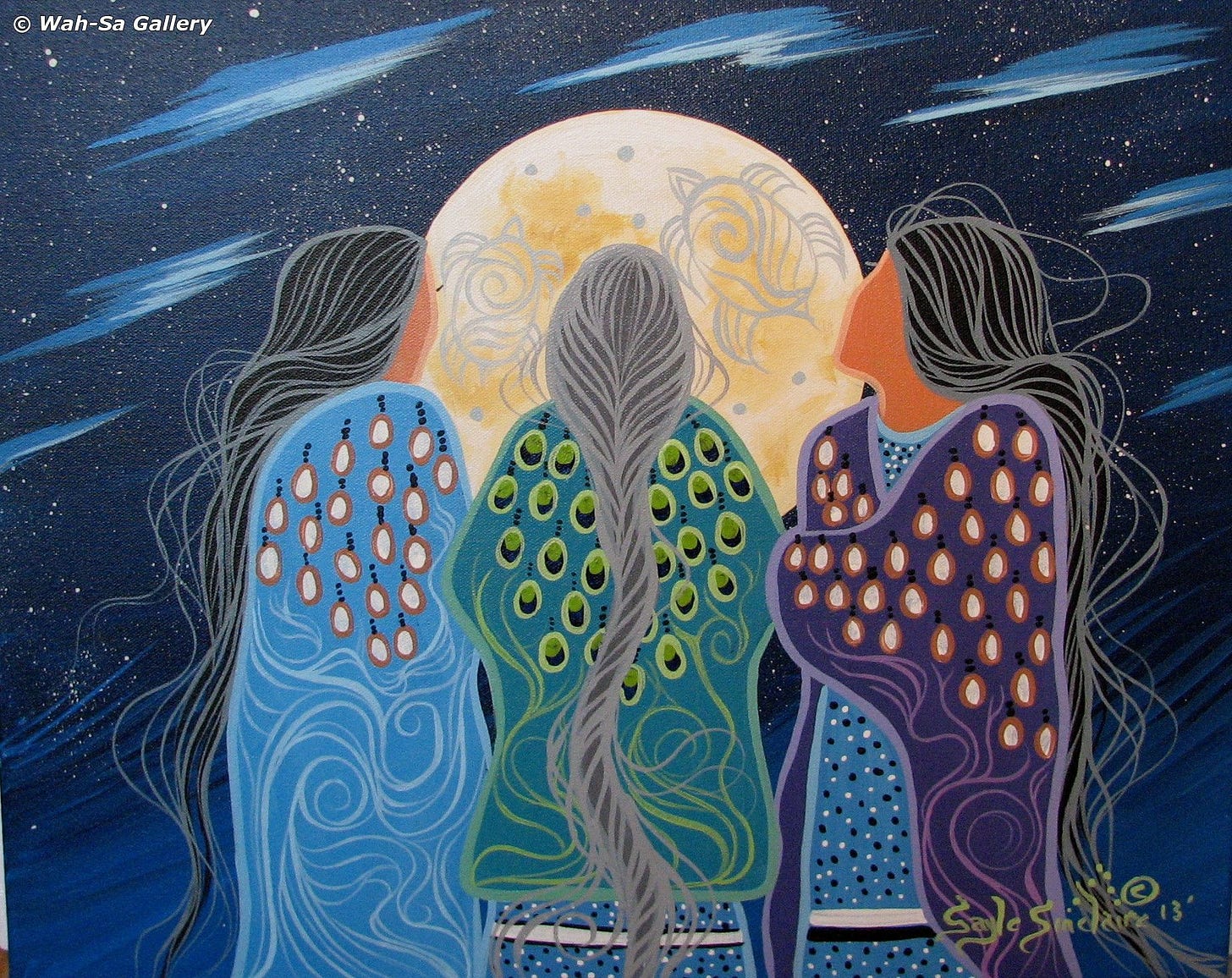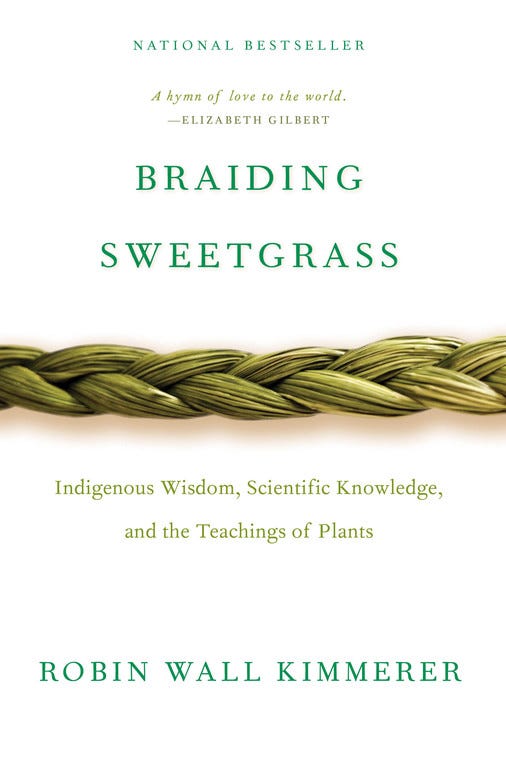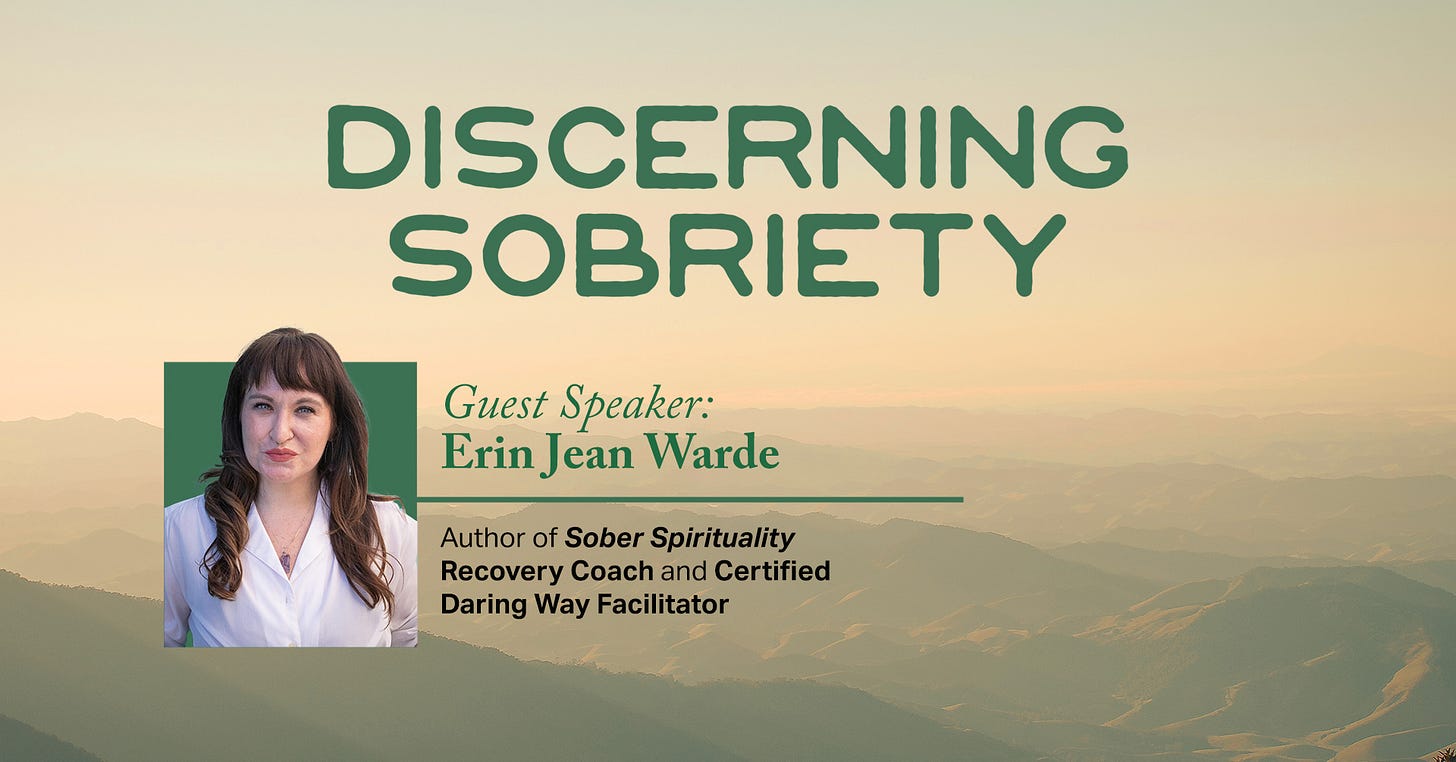our daily bread (erin jean warde)
What I desire now is this very sacred bond — a way of looking into the earth and seeing my daily bread, sustenance for the road ahead, something more than dirt.

our daily bread
How do I show my girls I love them on a morning in mid-June? I pick them wild strawberries. On a February afternoon we build snowmen and then sit by the fire. In March we make maple syrup. We pick violets in May and go swimming in July. On an August night we lay out blankets and watch meteor showers. In November, that great teacher the woodpile comes into our lives. That’s just the beginning. How do we show our children love? Each in our own way by a shower of gifts and a heavy rain of lessons.
… I knew it with a certainty as warm and clear as the September sunshine. The land loves us back. She loves us with beans and tomaotes, with roasting ears and blackberries and birdsongs. By a shower of gifts and a heavy rain of lessons. She provides for us and teaches us to provide for ourselves. That’s what good mothers do.
Robin Wall Kimmerer speaks in such a beautiful way about love, because it isn’t the amorphous love I have often yearned for but couldn’t quite place my finger on. No, this is the kind of love that is so very physical that I could, right this moment, sink my hands into the earth and find it.
I can’t help but think of this love as being akin to the very sacramental love that drew me into the Episcopal Church — a love not just wondered about, not just hoped for, but felt. Felt in the oil on my forehead, felt in the hand as bread, felt from the cross of ash signaling what I believe.
Food plants and people act as selective forces on each other’s evolution—the thriving of one in the best interest of the other. This, to me, sounds a bit like love.
There is a deep reciprocity in the love Kimmerer speaks of, a reciprocity known to me in my own belief. How we receive the sacraments from someone who also so desperately needs them. As I priest, I stood not as the deliverer of sacraments, not as the bearer of bread, as if it was bread of my own, but as the recipient of a gift, a grateful heart overflowing with the hope of daily bread. I stood behind the altar overjoyed to finally have bread to share with anyone else as hungry as I was.
Knowing that you love the earth changes you, activates you to defend and protect and celebrate. But when you feel that the earth loves you in return, that feeling transforms the relationship from a one-way street into a sacred bond.
What I desire now is this very sacred bond — a way of looking into the earth and seeing my daily bread, sustenance for the road ahead, something more than dirt. Or, maybe more importantly, I desire to see that dirt is holy. Dirt is beautiful. Dirt is given to me, to us, because it can bear the fruit that keeps us alive, in mind, body, and spirit. Dirt allows us to receive the Three Sisters.
I once knew and loved a man who lived most of his life in the city, but when he was dragged off to the ocean or the woods he seemed to enjoy it well enough—as long as he could find an Internet connection. He had lived in a lot of places, so I asked him where he found his greatest sense of place. He didn’t understand the expression. I explained that I wanted to know where he felt most nurtured and supported. What is the place that you understand best? That knows you best and knows you in return?
He didn’t take long to answer. “My car,” he said. “In my car. It provides me with everything I need, in just the way I like it. My favorite music. Seat position fully adjustable. Automatic mirrors. Two cup holders. I’m safe. And it always takes me where I want to go.” Years later, he tried to kill himself. In his car.
… He was like one of those little withered seeds you find in the bottom of the seed packet, the one who never touched the earth.
I wonder if much that ails our society stems from the fact that we have allowed ourselves to be cut off from that love of, and from, the land. It is medicine for broken land and empty hearts.
This Lent, my fasting has taken on the form of no social media apps on my phone, for the most part. I have to do a few things on social media professionally, but I’m hoping to do them via my laptop, or if necessary, I could download the app for the task, then delete it afterward.
In reading this part specifically, I thought of my attachment to technology. How there is a world outside yearning to love me back, but instead I spend so many hours consumed in media that hurts my mental health. Social media is not all bad — there is so much comedy that I love and cherish — but I have realized I can find comedy outside of the phone box. I can watch comedy specials. I can text my friends. I can listen to a comedy podcast. If I decide to go back to those apps, that is fine, but there is no scarcity of comedy and laughter outside of them. And, in fact, there is a rich world outside of them. A rich world I wish to love, knowing I will be loved in return.
I admit, I really love my car. I got a new one November 29th and — much to my lease agreement’s upset — I have already put 6K miles on it. I drove to Alabama & Florida, and back to Texas, twice after my sister’s death. The second time I also went to Nashville. I wish those miles had been for any other reason, but I’m grateful I was able to get there and back so many times.
But as I read this story from the book, I reflected, and I love my car because of where it has allowed me to go. How it allowed me to weep with my mother a little less than 24 hours after her daughter’s death. How it took us to the beach, where we should have gone together with Hazel. How it got me home again safely. How it let me to go to her once again. How we sat inside it to travel back to the waters, where we scattered Hazel’s ashes. How it keeps taking me to where I need to be, then bringing me back to the place I call home.
And now, I wonder where I might choose to go, where I might let a car, or even my feet, take me. I can’t always know where I’m headed, but I’d like to be going somewhere other than the loop and scroll that keeps me so stuck in place.
In closing, one of the most amazing things about this book, for me, is how it conjures up memory.
Shucking corn with my Grandmere, bought from the curb market. I can remember how surprised I was when we cooked it and it was sweet. Vegetables can be sweet.
Sneaking snow peas from the same bag, hoping my grandparents wouldn’t know. Giggling if they caught me, because they weren’t angry. I think they once snuck snow peas, too.
The first time I tried to grow squash (during the pandemic), but only got blossoms. How I still filled them with spices and goat cheese. I crusted them in panko and herbs, then pan fried them. I ate them as proudly as if I had harvested acres of gourds. A gift of life during a time of loneliness and death.
Rather than shaming myself for the hours spent inside, I’m trying to remember how the earth still blesses me. How God still gives me daily bread.
How the earth, like God and from God, always loves me back.
With care,
EJW
I hope you are enjoying Braiding Sweetgrass: Indigenous Wisdom, Scientific Knowledge, and the Teachings of Plants by Robin Wall Kimmerer.
I keep ruining the reading schedule, so I am just going to list our next chunk of reading, lol.
I’ll be back next week with a reflection on pages 156-201.
If you’re in the Lancaster, PA area — Come hang out with me to kick off Lent! I’m grateful for the chance to be hosted by St. James-Lancaster & The Urban Well this weekend, Feb. 25 & 26! The retreat is also available via livestream if you’re not in the area. Just register below!
Join us for a weekend retreat exploring tools to help enable you to discern your own relationship with addictive choices or behaviors so common to us all.
Erin Jean Warde, ordained Episcopal priest and author of Sober Spirituality, will share her personal journey which led her to quit alcohol. She and smaller breakout groups will provide additional tools to help each participant explore a more mindful relationship with our substance misuse and dependencies and the richer sobrieties we might seek or experience.
Recommended for those seeking wholeness in mind, body and soul, for those questioning their relationship with any kind of addictive choice (or supporting someone who is) regardless of where they are in their journey. Those of any faith or none are welcome.







Kimmerer's words are such a gift. Thank you for sharing them with us!